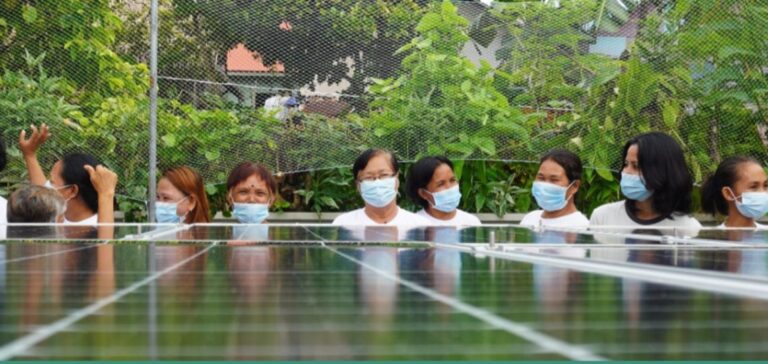Oxfam, through its Fair Finance Asia (FFA) and Influencing Just Energy Transition in Asia (I-JET) programs, introduces a new toolkit for decision-makers in Asia’s energy sector.
The Just Energy Transition (JET) Policy Toolkit is a platform of recommendations for financial regulators, credit institutions, multilateral development banks (MDBs) and energy players.
It seeks to structure energy transition policies by providing reliable data and guidance to align regional and national strategies.
The tool focuses on the need for effective coordination between stakeholders at various levels to establish coherent regulatory measures and encourage transition initiatives.
The involvement of all players in the sector, from energy companies to local organizations, is crucial to driving an orderly and realistic transition, which takes into account the economic and energy realities specific to each country in the region.
The priorities of the Just Energy Transition Policy Toolkit
The JET Policy Toolkit highlights priorities such as reducing reliance on fossil fuels and encouraging investment in renewable energies.
The toolkit also proposes market reforms to support decarbonization and integrate social and economic considerations at the heart of energy strategies.
The recommendations aim to encourage a systematic and coordinated approach, while taking account of local and regional particularities.
These guidelines are aligned with the commitments of the Energy Ministers of the Association of Southeast Asian Nations (ASEAN), who are seeking to accelerate energy transitions in their respective countries.
The 42nd ASEAN Energy Ministers’ Meeting (AMEM), scheduled for this year, represents an opportunity for decision-makers to anchor these guidelines in their national and regional policies, drawing on the tools made available by organizations such as Oxfam.
Capacity-building for local players
The tool is unveiled at the Second Southeast Asia Energy Transition Civil Society Organizations (CSOs) Gathering in Phnom Penh, Cambodia.
The meeting provides a platform for exchanging ideas and strategies around energy transitions, and prepares a position paper for the ASEAN Plan of Action for Energy Cooperation (APAEC) Phase III 2026-2030.
The recommendations of this tool could serve as a working basis for ASEAN member states in their energy transition efforts, particularly for the organization’s rotating presidencies.
Prospects for a coordinated energy transition
Oxfam’s tool enables non-governmental organizations and civil society actors to dialogue with public and financial decision-makers on complex issues such as transition financing mechanisms, the integration of human rights into energy policies, and the role of local actors in transition initiatives.
It thus supports an evidence-based approach and precise sectoral analyses.
By providing a clear, structured framework, the JET Policy Toolkit aims to enhance the effectiveness of energy transition initiatives in Asia.
It proposes solutions adapted to national contexts, while promoting regional harmonization of energy policies.
Decision-makers and regulators are thus better equipped to anticipate the sector’s challenges, optimize resource allocation and ensure a stable and coherent energy transition.





















